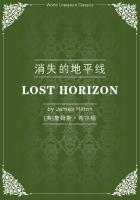* In this state of political suspense the pamphlet Common Sense made its appearance, and the success it met with does not become me to mention.Dr.Franklin, Mr.Samuel and John Adams, were severally spoken of as the supposed author.I had not, at that time, the pleasure either of personally knowing or being known to the two last gentlemen.The favor of Dr.Franklin's friendship I possessed in England, and my introduction to this part of the world was through his patronage.I happened, when a school-boy, to pick up a pleasing natural history of Virginia, and my inclination from that day of seeing the western side of the Atlantic never left me.In October, 1775, Dr.Franklin proposed giving me such materials as were in his hands, towards completing a history of the present transactions, and seemed desirous of having the first volume out the next Spring.Ihad then formed the outlines of Common Sense, and finished nearly the first part; and as I supposed the doctor's design in getting out a history was to open the new year with a new system, I expected to surprise him with a production on that subject, much earlier than he thought of; and without informing him what I was doing, got it ready for the press as fast as I conveniently could, and sent him the first pamphlet that was printed off.I find it impossible in the small compass I am limited to, to trace out the progress which independence has made on the minds of the different classes of men, and the several reasons by which they were moved.With some, it was a passionate abhorrence against the king of England and his ministry, as a set of savages and brutes; and these men, governed by the agony of a wounded mind, were for trusting every thing to hope and heaven, and bidding defiance at once.With others, it was a growing conviction that the scheme of the British court was to create, ferment and drive on a quarrel, for the sake of confiscated plunder: and men of this class ripened into independence in proportion as the evidence increased.While a third class conceived it was the true interest of America, internally and externally, to be her own master, and gave their support to independence, step by step, as they saw her abilities to maintain it enlarge.With many, it was a compound of all these reasons; while those who were too callous to be reached by either, remained, and still remain Tories.
The legal necessity of being independent, with several collateral reasons, is pointed out in an elegant masterly manner, in a charge to the grand jury for the district of Charleston, by the Hon.
William Henry Drayton, chief justice of South Carolina, [April 23, 1776].This performance, and the address of the convention of New York, are pieces, in my humble opinion, of the first rank in America.
The principal causes why independence has not been so universally supported as it ought, are fear and indolence, and the causes why it has been opposed, are, avarice, down-right villany, and lust of personal power.There is not such a being in America as a Tory from conscience; some secret defect or other is interwoven in the character of all those, be they men or women, who can look with patience on the brutality, luxury and debauchery of the British court, and the violations of their army here.A woman's virtue must sit very lightly on her who can even hint a favorable sentiment in their behalf.It is remarkable that the whole race of prostitutes in New York were tories; and the schemes for supporting the Tory cause in this city, for which several are now in jail, and one hanged, were concerted and carried on in common bawdy-houses, assisted by those who kept them.
The connection between vice and meanness is a fit subject for satire, but when the satire is a fact, it cuts with the irresistible power of a diamond.If a Quaker, in defence of his just rights, his property, and the chastity of his house, takes up a musket, he is expelled the meeting; but the present king of England, who seduced and took into keeping a sister of their society, is reverenced and supported by repeated Testimonies, while, the friendly noodle from whom she was taken (and who is now in this city) continues a drudge in the service of his rival, as if proud of being cuckolded by a creature called a king.
Our support and success depend on such a variety of men and circumstances, that every one who does but wish well, is of some use: there are men who have a strange aversion to arms, yet have hearts to risk every shilling in the cause, or in support of those who have better talents for defending it.Nature, in the arrangement of mankind, has fitted some for every service in life: were all soldiers, all would starve and go naked, and were none soldiers, all would be slaves.As disaffection to independence is the badge of a Tory, so affection to it is the mark of a Whig; and the different services of the Whigs, down from those who nobly contribute every thing, to those who have nothing to render but their wishes, tend all to the same center, though with different degrees of merit and ability.The larger we make the circle, the more we shall harmonize, and the stronger we shall be.All we want to shut out is disaffection, and, that excluded, we must accept from each other such duties as we are best fitted to bestow.A narrow system of politics, like a narrow system of religion, is calculated only to sour the temper, and be at variance with mankind.















